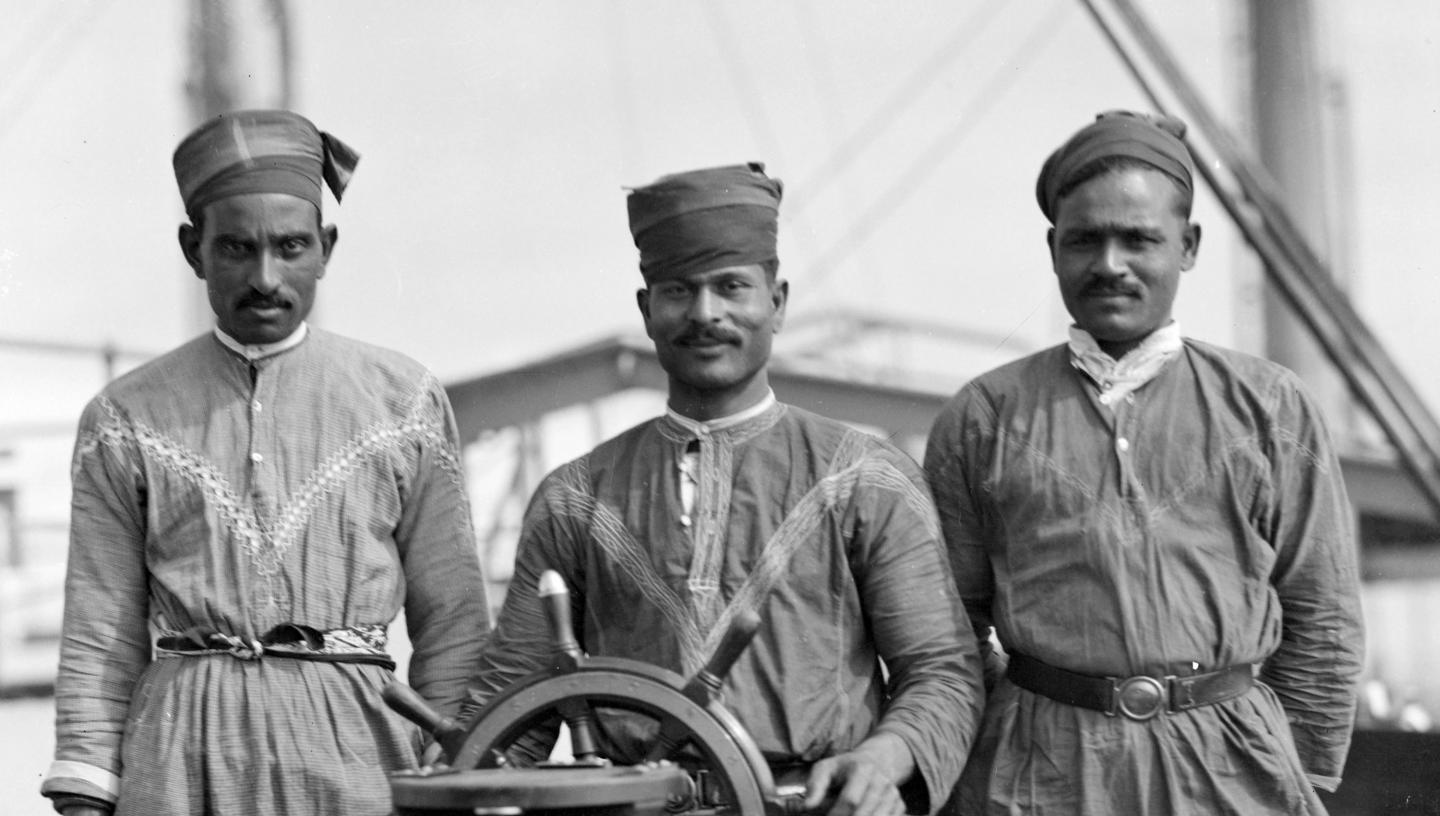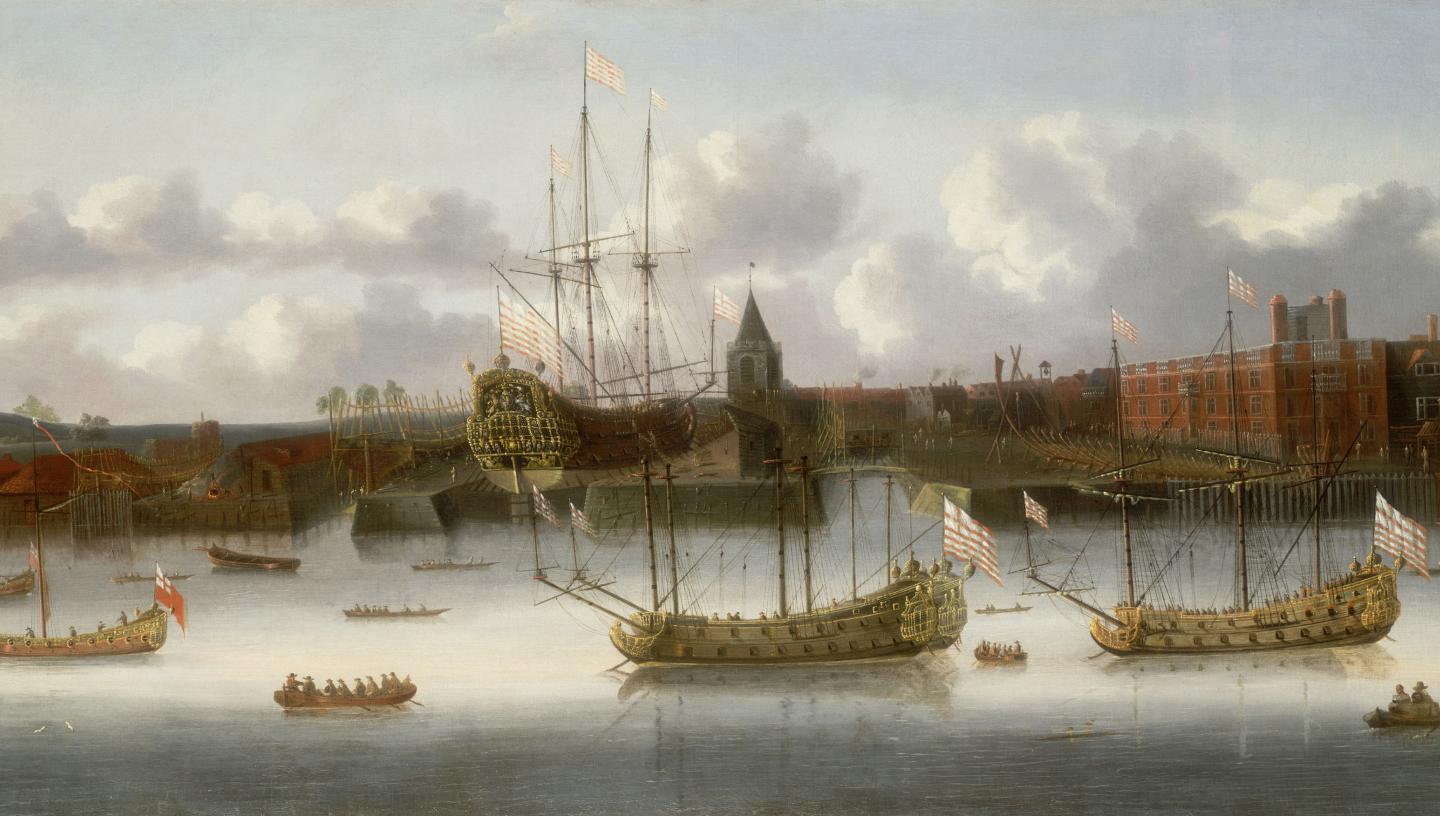
The East India Company employed Asian seamen known as 'Lascars' in the 17th century, who served on European ships.
The first European use of the word ‘Lascar’ dates back to the Portuguese employment of Asian seamen in the early 1500s.
Lascars were recruited to serve on European ships and paid through a 'Ghat Sarhang', an Indian agent. This term comes from the Hindi word ‘ghat’, meaning landing place, set of bathing steps, and mountain pass, and the Persian word sarhang, meaning commander or overseer.
Deserted in London
In 1746, the articles for the East Indiaman ship Tryal recorded that the Lascar crew were paid a fixed monthly wage for the voyage from India to London. When in London, they were promised bounty money and maintenance while they waited for a return passage to their port of origin.
In practice, the East India Company abandoned Lascars once they were in London, so the Merchant Shipping Act of 1823 made the Company legally responsible for their upkeep in England. In 1855 the Church Missionary Society founded the Strangers' Home for Asiatics, Africans and South Sea Islanders in London, in an effort to provide for destitute foreign seamen.
